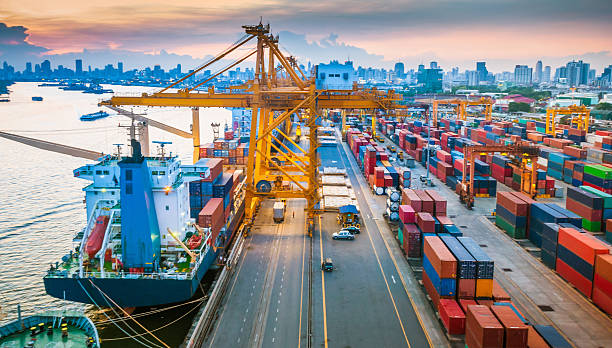The Nigerian Ports Authority (NPA) has recently initiated a significant change in the export process by making the Nigeria Export Proceed (NXP) mandatory for all export-bound cargo trucks entering the nation’s ports. This policy, effective as of February 3, 2025, is part of a broader strategy to enhance efficiency and streamline export operations in Nigeria. In this article, we will delve into the implications of this policy and explore how it can impact businesses involved in export activities.
UNDERSTANDING THE NXP POLICY
The Nigeria Export Proceed (NXP) policy is designed to ensure that all export transactions are properly documented and that foreign earnings from exports are repatriated back to Nigeria. This initiative is crucial for maintaining transparency and compliance with trade regulations. By requiring exporters to complete the NXP form before accessing the ports, the NPA aims to reduce irregularities in trade and improve Nigeria’s standing in global trade compliance.
The NXP form provides essential information about the goods being exported to relevant authorities, including the exporter’s bank, Nigeria Customs Services, and Pre-shipment Inspection Agents. This comprehensive documentation helps in tracking the movement of export proceeds and ensures that exporters adhere to the regulations governing export trade.
IMPACT ON EXPORT EFFICIENCY AND TRANSPARENCY
The mandatory implementation of NXP is expected to significantly enhance the efficiency of the export process. By integrating the NXP system with the Electronic Call-Up System (ETO) platform, exporters must secure an approved NXP application number before booking export consignments. This requirement ensures that only consignments with verified, final-stage approval proceed to export processing, thereby minimizing processing delays at export terminals.
Moreover, this policy aims to reduce road congestion by ensuring that export vehicles complete their reloading processes before proceeding to the port. The streamlined export process will not only enhance international competitiveness but also attract more business and generate higher revenue for the nation.
COLLABORATION AND TECHNOLOGICAL INTEGRATION
The successful integration of the NXP system with the ETO platform is a result of collaborative efforts between the NPA, the Central Bank of Nigeria (CBN), and other key stakeholders. This integration represents a significant step towards modernizing Nigeria’s export operations, enhancing transparency, and ensuring operational excellence at the nation’s ports.
Technological advancements play a crucial role in this initiative. The use of innovative platforms like the ETO system allows for real-time tracking and verification of export consignments, ensuring that only compliant shipments are processed. This technological integration underscores a forward-thinking approach to tackling logistical challenges and promoting sustainable economic growth.
BENEFITS FOR EXPORTERS AND THE ECONOMY
The mandatory NXP policy offers several benefits for exporters and the Nigerian economy as a whole. By enforcing proper documentation and repatriation of export proceeds, the policy helps in reducing trade irregularities and improving compliance with international trade standards. This can lead to increased foreign exchange earnings and a stronger position for Nigeria in global trade.
Furthermore, the streamlined export process will enhance the competitiveness of Nigerian exports, making them more attractive to international markets. The policy also supports the government’s initiatives to boost non-oil exports, which have seen significant growth in recent years.
CHALLENGES AND OPPORTUNITIES
While the NXP policy presents numerous opportunities for improving export efficiency and compliance, it also poses challenges for exporters and logistics operators. The need to familiarize themselves with the new procedures and ensure strict adherence to avoid disruptions in cargo processing and transportation is paramount.
However, these challenges also present opportunities for businesses to adapt and innovate. By embracing the new regulations and leveraging technological solutions, exporters can enhance their operations and capitalize on the benefits offered by the streamlined export process.
CONCLUSION
The mandatory implementation of the NXP policy marks a significant milestone in Nigeria’s efforts to modernize its export sector. As exporters and logistics operators navigate these changes, it is essential to stay informed and adapt to the new requirements.
If you are interested in learning more about how to navigate these changes effectively and capitalize on the opportunities presented by the NXP policy, consider registering for our upcoming export training at www.microvarsity.com/meta.
This comprehensive training will equip you with the knowledge and skills needed to thrive in Nigeria’s evolving export landscape. Take the first step towards enhancing your export operations and securing a competitive edge in the global market today!

